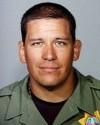By George Friedman
Major shifts underway in the Chinese economy that Stratfor has forecastand discussed for years have now drawn the attention of the mainstream media. Many have asked when China would find itself in an economic crisis, to which we have answered that China has been there for awhile -- something not widely recognized outside China, and particularly not in the United States. A crisis can exist before it is recognized. The admission that a crisis exists is a critical moment, because this is when most others start to change their behavior in reaction to the crisis. The question we had been asking was when the Chinese economic crisis would finally become an accepted fact, thus changing the global dynamic. Last week, the crisis was announced with a flourish. First, The New York Times columnist and Nobel Prize-recipient Paul Krugman penned a piece titled "Hitting China's Wall." He wrote, "The signs are now unmistakable: China is in big trouble. We're not talking about some minor setback along the way, but something more fundamental. The country's whole way of doing business, the economic system that has driven three decades of incredible growth, has reached its limits. You could say that the Chinese model is about to hit its Great Wall, and the only question now is just how bad the crash will be."
Later in the week, Ben Levisohn authored a column in Barron's called "Smoke Signals from China." He wrote, "In the classic disaster flick 'The Towering Inferno' partygoers ignored a fire in a storage room because they assumed it has been contained. Are investors making the same mistake with China?" He goes on to answer his question, saying, "Unlike three months ago, when investors were placing big bets that China's policymakers would pump cash into the economy to spur growth, the markets seem to have accepted the fact that sluggish growth for the world's second largest economy is its new normal."
Meanwhile, Goldman Sachs -- where in November 2001 Jim O'Neil coined the term BRICs and forecast that China might surpass the United States economically by 2028 -- cut its forecast of Chinese growth to 7.4 percent.
The New York Times, Barron's and Goldman Sachs are all both a seismograph of the conventional wisdom and the creators of the conventional wisdom. Therefore, when all three announce within a few weeks that China's economic condition ranges from disappointing to verging on a crash, it transforms the way people think of China. Now the conversation is moving from forecasts of how quickly China will overtake the United States to considerations of what the consequences of a Chinese crash would be.
Doubting China
Suddenly finding Stratfor amid the conventional wisdom regarding China does feel odd, I must admit. Having first noted the underlying contradictions in China's economic growth years ago, when most viewed China as the miracle Japan wasn't, and having been scorned for not understanding the shift in global power underway, it is gratifying to now have a lot of company. Over the past couple of years, the ranks of the China doubters had grown. But the past few months have seen a sea change. We have gone from China the omnipotent, the belief that there was nothing the Chinese couldn't work out, to the realization that China no longer works.
It has not been working for some time. One of the things masking China's weakening has been Chinese statistics, which Krugman referred to as "even more fictional than most." China is a vast country in territory and population. Gathering information on how it is doing would be a daunting task, even were China inclined to do so. Instead, China understands that in the West, there is an assumption that government statistics bear at least a limited relationship to truth. Beijing accordingly uses its numbers to shape perceptions inside and outside China of how it is doing. The Chinese release their annual gross domestic product numbers in the third week of January (and only revise them the following year). They can't possibly know how they did that fast, and they don't. But they do know what they want the world to believe about their growth, and the world has believed them -- hence, the fantastic tales of economic growth. China in fact has had an extraordinary period of growth. The last 30 years have been remarkable, marred only by the fact that the Chinese started at such a low point due to the policies of the Maoist period. Growth at first was relatively easy; it was hard for China to do worse. But make no mistake: China surged. Still, basing economic performance on consumption, Krugman notes that China is barely larger economically than Japan. Given the compounding effects of China's guesses at GDP, we would guess it remains behind Japan, but how can you tell? We can say without a doubt that China's economy has grown dramatically in the past 30 years but that it is no longer growing nearly as quickly as it once did.
China's growth surge was built on a very unglamorous fact: Chinese wages were far below Western wages, and therefore the Chinese were able to produce a certain class of products at lower cost than possible in the West. The Chinese built businesses around this, and Western companies built factories in China to take advantage of the differential. Since Chinese workers were unable to purchase many of the products they produced given their wages, China built its growth on exports. For this to continue, China had to maintain its wage differential indefinitely. But China had another essential policy: Beijing was terrified of unemployment and the social consequences that flow from it. This was a rational fear, but one that contradicted China's main strength, its wage advantage. Because the Chinese feared unemployment, Chinese policy, manifested in bank lending policies, stressed preventing unemployment by keeping businesses going even when they were inefficient. China also used bank lending to build massive infrastructure and commercial and residential property. Over time, this policy created huge inefficiencies in the Chinese economy. Without recessions, inefficiencies develop. Growing the economy is possible, but not growing profitability. Eventually, the economy will be dragged down by its inefficiency.
Inflation vs. Unemployment
As businesses become inefficient, production costs rise. And that leads to inflation. As money is lent to keep inefficient businesses going, inflation increases even more markedly. The increase in inefficiency is compounded by the growth of the money supply prompted by aggressive lending to keep the economy going. As this persisted over many years, the inefficiencies built into the Chinese economy have become staggering.
The second thing to bear in mind is the overwhelming poverty of China, where 900 million people have an annual per capita income around the same level as Guatemala, Georgia, Indonesia or Mongolia ($3,000-$3,500 a year), while around 500 million of those have an annual per capita income around the same level as India, Nicaragua, Ghana, Uzbekistan or Nigeria ($1,500-$1,700). China's overall per capita GDP is around the same level as the Dominican Republic, Serbia, Thailand or Jamaica. Stimulating an economy where more than a billion people live in deep poverty is impossible. Economic stimulus makes sense when products can be sold to the public. But the vast majority of Chinese cannot afford the products produced in China, and therefore, stimulus will not increase consumption of those products. As important, stimulating demand so that inefficient factories can sell products is not only inflationary, it is suicidal. The task is to increase consumption, not to subsidize inefficiency.
The Chinese are thus in a trap. If they continue aggressive lending to failing businesses, they get inflation. That increases costs and makes the Chinese less competitive in exports, which are also falling due to the recession in Europe and weakness in the United States. Allowing businesses to fail brings unemployment, a massive social and political problem. The Chinese have zigzagged from cracking down on lending by regulating informal lending and raising interbank rates to loosening restrictions on lending by removing the floor on the benchmark lending rate and by increasing lending to small- and medium-sized businesses. Both policies are problematic. The Chinese have maintained a strategy of depending on exports without taking into account the operation of the business cycle in the West, which means that periodic and substantial contractions of demand will occur. China's industrial plant is geared to Western demand. When Western demand contracted, the result was the mess you see now.
The Chinese economy could perhaps be growing at 7.4 percent, but I doubt the number is anywhere near that. Some estimates place growth at closer to 5 percent. Regardless of growth, the ability to maintain profit margins is rarely considered. Producing and selling at or even below cost will boost GDP numbers but undermines the financial system. This happened to Japan in the early 1990s. And it is happening in China now.
The Chinese can prevent the kind of crash that struck East Asia in 1997. Their currency isn't convertible, so there can't be a run on it. They continue to have a command economy; they are still communist, after all. But they cannot avoid the consequences of their economic reality, and the longer they put off the day of reckoning, the harder it will become to recover from it. They have already postponed the reckoning far longer than they should have. They would postpone it further if they could by continuing to support failing businesses with loans. They can do that for a very long time -- provided they are prepared to emulate the Soviet model's demise. The Chinese don't want that, but what they do want is a miraculous resolution to their problem. There are no solutions that don't involve agony, so they put off the day of reckoning and slowly decline.
China's Transformation
The Chinese are not going to completely collapse economically any more than the Japanese or South Koreans did. What will happen is that China will behave differently than before. With no choices that don't frighten them, the Chinese will focus on containing the social and political fallout, both by trying to target benefits to politically sensitive groups and by using their excellent security apparatus to suppress and deter unrest. The Chinese economic performance will degrade, but crisis will be avoided and political interests protected. Since much of China never benefited from the boom, there is a massive force that has felt marginalized and victimized by coastal elites. That is not a bad foundation for the Communist Party to rely on.
The key is understanding that if China cannot solve its problems without unacceptable political consequences, it will try to stretch out the decline. Japan had a lost decade only in the minds of Western investors, who implicitly value aggregate GDP growth over other measures of success such as per capita GDP growth or full employment. China could very well face an extended period of intense inwardness and low economic performance. The past 30 years is a tough act to follow.
The obvious economic impact on the rest of the world will fall on the producers of industrial commodities such as iron ore. The extravagant expectations for Chinese growth will not be met, and therefore expectations for commodity prices won't be met. Since the Chinese economic failure has been underway for quite awhile, the degradation in prices has already happened. Australia in particular has been badly hit by the Chinese situation, just as it was by the Japanese situation a generation ago. The Chinese are, of course, keeping a great deal of money in U.S. government instruments and other markets. Contrary to fears, that money will not be withdrawn. The Chinese problem isn't a lack of capital, and repatriating that money would simply increase inflation. Had the Chinese been able to put that money to good use, it would have never been invested in the United States in the first place. The outflow of money from China was a symptom of the disease: Lacking the structure to invest in China, the government and private funds went overseas. In so doing, Beijing sought to limit destabilization in China, while private Chinese funds looked for a haven against the storm that was already blowing.
Rather than the feared repatriation of funds, the United States will continue to be the target of major Chinese cash inflows. In a world where Europe is still reeling, only the United States is both secure and large enough to contain Chinese appetites for safety. Just as Japanese investment in the 1990s represented capital flight rather than a healthy investment appetite, so the behavior we have seen from Chinese investors in recent years is capital flight: money searching for secure havens regardless of return. This money has underpinned American markets; it is not going away, and in fact more is on the way.
The major shift in the international order will be the decline of China's role in the region. China's ability to project military power in Asia has been substantially overestimated. Its geography limits its ability to project power in Eurasia, an endeavor that would require logistics far beyond China's capacity. Its naval capacity is still limited compared with the United States. The idea that it will compensate for internal economic problems by genuine (as opposed to rhetorical) military action is therefore unlikely. China has a genuine internal security problem that will suck the military, which remains a domestic security force, into actions of little value. In our view, the most important shift will be the re-emergence of Japan as the dominant economic and political power in East Asia in a slow process neither will really want.
China will continue to be a major power, and it will continue to matter a great deal economically. Being troubled is not the same as ceasing to exist. China will always exist. It will, however, no longer be the low-wage, high-growth center of the world. Like Japan before it, it will play a different role. In the global system, there are always low-wage, high-growth countries because the advanced industrial powers' consumers want to absorb goods at low wages. Becoming a supplier of those goods is a major opportunity for, and disruptor to, those countries. No one country can replace China, but China will be replaced. The next step in this process is identifying China's successors.
Recognizing the End of the Chinese Economic Miracle is republished with permission of Stratfor.












